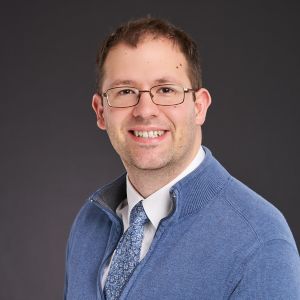St. Jude Family of Websites
Explore our cutting edge research, world-class patient care, career opportunities and more.
St. Jude Children's Research Hospital Home

- Fundraising
St. Jude Family of Websites
Explore our cutting edge research, world-class patient care, career opportunities and more.
St. Jude Children's Research Hospital Home

- Fundraising
Fundamental research sets the stage for immuno-oncology collaboration

Co-directors of the Center of Excellence for Pediatric Immuno-oncology (CEPIO), Stephen Gottschalk, MD, St. Jude Department of Bone Marrow Transplantation and Cellular Therapy chair and Hongbo Chi, PhD, St. Jude Department of Immunology chair.
Immuno-oncology experienced a triumphant moment in 2012 when engineered T cells successfully treated a pediatric patient’s B-cell acute lymphoblastic leukemia (B-ALL) for the first time. Immunotherapy is an approach that enhances the immune system’s ability to destroy cancer, providing a therapeutic solution for difficult-to-treat malignancies. While this approach worked for B-ALL and other blood cancers, it has been less successful for solid tumors and brain tumors. Expanding on the proof-of-principle effects in leukemia, scientists continue to explore immunotherapy’s promise, uncovering complex fundamental immunology that impacts clinical performance.
That immunotherapy approach from 2012 used chimeric antigen receptor (CAR) T cells — patient-derived T cells that are genetically altered to target cancer cells. St. Jude scientists helped create those first CAR constructs for B-ALL, designing the effective CAR that targeted CD19 — a protein expressed on B cells — using their knowledge of fundamental T-cell biology. At St. Jude and elsewhere, researchers have identified major barriers for CAR T–cell-based immunotherapies: CAR T cells often do not persist in tumors for long periods of time, and they frequently become functionally impaired or exhausted, meaning their ability to kill cancer cells is reduced.
To counteract these effects, scientists needed a better understanding of the fundamental mechanisms driving T-cell biology. In 2019, the lab of Hongbo Chi, PhD, who recently became Chair of the St. Jude Department of Immunology, found a way to counteract the loss of persistence by removing REGNASE-1 in mouse T cells, as published in Nature. “We used gene-editing technology called CRISPR to perform an unbiased genetic screen of metabolic genes to uncover those suppressing the function and persistence of tumor-targeting T cells, including CAR T cells based on collaborative studies with Terrence Geiger,” Chi explained. “We found REGNASE-1 as a potent inhibitory molecule for T-cell responses against tumors.”
Following that initial work, the collaborative team tried to understand why removing REGNASE-1 improved CAR T–cell performance in B-ALL model systems. Published in 2021 in Blood, they identified mechanisms by which REGNASE-1 deficiency pushes CAR T cells toward a long-term, memory-like state rather than an exhausted state in response to tumors. Though they uncovered that foundational knowledge, they still needed partners to help translate the discovery into clinical impact.
Getting insights into clinical immunotherapy
On the clinical side, investigators noticed that in certain cancers, patients receiving immunotherapy could be classified as responders and non-responders. The responders were often cleared of disease while non-responders experienced minimal benefits. While some studies, such as Chi’s work, focused on the effects of specific metabolic regulators, others, including studies by Benjamin Youngblood, PhD, St. Jude Department of Immunology, and Caitlin Zebley, MD, PhD, St. Jude Department of Bone Marrow Transplantation and Cellular Therapy, suggested that epigenetic factors dictate whether patients were responders or non-responders.
“We want to understand why some patients respond to a particular immunotherapy and others don’t,” said Stephen Gottschalk, MD, St. Jude Department of Bone Marrow Transplantation and Cellular Therapy chair. “In one case, we found an epigenetic signature of human CAR T-cell exhaustion that gave us insight into the results of earlier CAR T–cell trials.”
In 2022, in Science Translational Medicine, St. Jude scientists, including Youngblood, Zebley, Gottschalk and Giedre Krenciute, PhD, Department of Bone Marrow Transplantation and Cellular Therapy, showed that removing the epigenetic regulator DNMT3A improved human CAR T–cell performance in model systems, preventing exhaustion. The regulatory mechanism they uncovered also explained disparate results in some CAR T–cell clinical trials, providing strong support for their findings.
Connecting immuno-oncology findings together
To continue the St. Jude legacy of excellence in immuno-oncology, Chi and Gottschalk recently helped create the Center of Excellence for Pediatric Immuno-oncology (CEPIO). CEPIO seeks to increase collaboration between the many labs at the institution focused on immunotherapy, from fundamental work on immune cells to early-stage clinical trials. Chi and Gottschalk serve as co-directors of the Center, which aims to overcome barriers to advancing foundational work into the clinic by creating a formal structure to intertwine discovery and translation.
“We have many people working in immuno-oncology at St. Jude,” Chi added. “What we’ve lacked is a central hub to connect everyone across the institution to facilitate collaboration, especially the integration between basic science and clinical translation.”
“CEPIO provides a forum for us to discuss our findings in immuno-oncology, from those in fundamental immunology to clinical translation,” Gottschalk explained. “This enables more efficient translation of laboratory findings into the clinic. Likewise, through CEPIO, we foster so-called reverse translational studies that are focused on analyzing samples from patients who are enrolled in cell-therapy studies.”
CEPIO provides support for St. Jude investigators studying immuno-oncology, including financial and logistical support for moving discoveries, such as REGNASE-1 and DNMT3A, into clinical trials. The Center also hastens the transfer of knowledge between groups that may otherwise seldom interact, such as those in fundamental T-cell biology research and those testing immunotherapies in the clinic. The goal is to accelerate treatment and cure discoveries for cancer by helping these researchers share findings and identify opportunities, creating a virtuous cycle to push immunotherapy forward.
“Ultimately, we all have the same goal,” Chi said. “We all want to help save the lives of children with cancer. CEPIO helps us function as one community, making a bigger and faster impact for these kids.”






